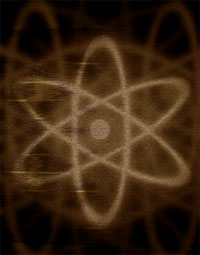Dec 13, 2025
Dec 13, 2025
 India is blessed with an extremely savvy political class; some may even call it na've. What else could explain the fulminations against the Indo US Civil Nuclear Agreement in the Parliament on 26 July 2006, the very day it was being voted in the US Congress? The political timing for the detractors was perfect. It was fully one year and eight days after the famous Manmohan ' Bush accord was inked that the debate in both the democracies, India and the US reached its zenith.
India is blessed with an extremely savvy political class; some may even call it na've. What else could explain the fulminations against the Indo US Civil Nuclear Agreement in the Parliament on 26 July 2006, the very day it was being voted in the US Congress? The political timing for the detractors was perfect. It was fully one year and eight days after the famous Manmohan ' Bush accord was inked that the debate in both the democracies, India and the US reached its zenith.
Hopefully the accord will be successfully concluded by the end of the year. Those who are aware of the working of the United States had indicated long back that 18 July 2005 was just the first of the many sets of events that would mark the inking of the final act. The US President's powers in such issues are extremely limited as nuclear non proliferation is considered as a vital national security interest by the US legislators, restricting the nuclear club being a principal strategy followed across liberal as well as conservative lines. US legislators as Chairman of the Senate Foreign Relations Committee Richard Lugar are hardened non proliferators. Lugar has been instrumental for the Nunn Lugar program which has seen effective control and reduction of Russia's nuclear arsenal after break up of the Soviet Union. The successful clearance of the Bill by the Senate Foreign Relations Committee headed by Lugar was thus of considerable import.
That there would be spokes in the wheel was evident even in July 2005, however the debate in India was restricted to a sellout of national sovereignty and capping of indigenous capability. These inhibitions have been some what overcome with the nuances of just 14 of the 22 facilities being under IAEA regime having been driven home in the country. However after the stipulations laid down by the US legislative committees on a final agreement many new ones seem to be emerging. These restrictions on the President of the United States are more or less on expected lines and one cannot hold the treaty to ransom because of a few restrictive clauses which address not only US but global non proliferation concerns. The principal one, of restrictions coming into force in case of continued fissile material production and testing by India, is itself a non issue, now that the United States has tabled the Fissile Material Cut off Treaty in Geneva. If it is any succor to the Left and the Right of the Indian political spectrum, currently lobbying hard at home against the Agreement, the non proliferation pleaders in the United States are calling the treaty a sell out by America, a recent op ed in the New York Times even acidly remarked, 'Bush administration got taken to the cleaners when it negotiated a nuclear cooperation deal with India'.
The key issue inasmuch as India is concerned is that this is a win ' win agreement for the country. India's nuclear energy programme is starving of Uranium. Our scientists have been pursuing the Thorium route to overcome this key strategic deficiency but the commercial success of this is a long way off. Unless India accepts to place some of its facilities under IAEA safeguards, members of the Nuclear Suppliers Group such as Australia who have considerable Uranium reserves will not supply this critical fuel to the country. The IAEA is in turn dependent on removal of sanctions by the United States which is envisaged through the Indo US Civil Nuclear Agreement. Thus it is the proverbial chicken and egg story and just when the Manmohan Singh government has solved the Sudoku, holding it hostage to some tertiary clauses may not be justified.
For the United States too, the Agreement is not an altruistic, emotional democracy to democracy initiative but a pathway to India's vast energy including nuclear energy market being eyed by its private players, the likes of Areva, GE and others. The spin offs from opening the nuclear energy sector in the country are also of immense interest to other countries as France and Russia major players in the nuclear energy market. This apart nuclear sanctions have been a major hurdle in the strategic partnership that the US seeks to build with India, now that this is out of the way more Indo US cooperation is in the offing.
In the dynamics of global polity today, balance of power has been replaced by nuanced cooperative security. Thus India's acquiescence to the Agreement and some of the clauses which will come with it will neither place it in the US sphere of influence nor compromise its strategic autonomy. Ironically strategic independence today is through strategic interdependence not haughty isolation. Thus it is time that India's savvy political class demonstrates greater sagacity in accepting the limitations within which the Indian government is operating today and strengthen its hands at least behind the scenes if not in the open shenanigans in Parliament.
30-Jul-2006
More by : Col. Rahul K. Bhonsle